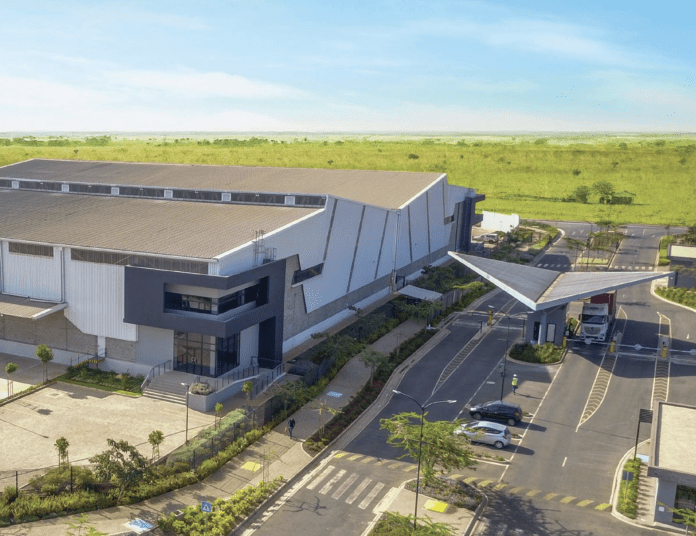Knight Frank Kenya, a premier real estate advisory firm, has published its highly anticipated Kenya Market Update H2 2024. The report offers an in-depth analysis of the country’s economic and real estate landscape and provides key insights into market performance across various sectors, including the macro-economy, capital markets, office space, retail, residential, industrial and infrastructure, and alternative investments.
Macro-economy and capital markets
Kenya’s economy faced significant challenges in H2 2024, with GDP growth slowing to 4.7%, down from 5.6% in 2023. High public debt and subdued private investment impacted overall growth. However, inflation stabilized within the CBK’s target range of 2.5% – 7.5%, and the Kenya Shilling appreciated by 20.86% against the USD, closing the year at KES 129 per USD.
Nearly all tenants in Kenya don’t sign leases with their landlords
Despite high interest rates, the CBK base rate dropped from 13% to 11.25%, offering some relief to borrowers. Meanwhile, the Nairobi Securities Exchange (NSE) remained subdued, with investor interest concentrated in government securities.
“Kenya’s resilience remains strong despite economic challenges. With inflation and currency stabilization, we see continued investor confidence and exciting opportunities for strategic, long-term investments.” – Mark Dunford, CEO, Knight Frank Kenya
Infrastructure and policy
Public debt concerns continued to limit infrastructure development, prompting the government to prioritize Public-Private Partnerships (PPPs). Notable projects in H2 2024 included:
• Completion of the KES 40 billion Dongo Kundu Bypass
• Progress on the Mombasa SGR-MGR link project
Policy changes also shaped the real estate sector, with the National Rating Bill 2022 introducing a standardized framework for county land and building rates. Additionally, a landmark court ruling on commercial lease terms is set to redefine landlord-tenant dynamics.
Office market
The Nairobi office market continued to experience challenges, with occupancy levels declining to 72.7% due to oversupply. New developments added 522,284 sq. ft. of prime office space, including:
• Purple Tower
• Highway Heights
• The Mandrake
Despite the surplus, monthly prime office rents remained stable at USD 1.2 per sq.ft.
“The Nairobi office market is adjusting to shifting demand, with a steady rise in flexible workspaces.” – Mark Dunford, CEO, Knight Frank Kenya
Retail sector
Despite economic headwinds, retail expansion remained strong, with over 250,000 sq. ft. of new retail space completed, including:
• Mwanzi Market
• Runda Mall
• The Cove, Lavington
Supermarkets adapted by opening smaller-format stores in residential areas and petrol stations rather than focusing solely on malls.
Key highlights:
• Naivas, Carrefour, and Chandarana expanded operations.
• Decathlon opened a 64,500 sq. ft. store at Westgate Mall, tapping into the growing active lifestyle market.
Residential market
The prime residential sector saw increased demand, with sale prices rising 8.27% year-on-year (up from 2.45% in 2023). Prime rental prices also increased by 6.56% in H2 2024.
Zoning changes in areas like Kilimani continued to reshape Nairobi’s skyline, while the “build-to-sell” model gained traction, particularly in Westlands, Runda, and Kiambu Road.
Hospitality sector
Kenya welcomed a record-breaking 2.5 million tourist arrivals in 2024, driving demand for luxury and upscale hotel accommodations. Key developments included:
• Novotel Westlands
• Hyatt House
• Okash Hotel Nairobi
Upcoming projects:
• KES 1.2 billion Courtyard Hotel near JKIA, reinforcing Nairobi’s status as a regional business hub.
“The hospitality sector’s growth reflects Kenya’s resilience as a leading tourism and business destination in Africa. With strong visitor arrivals and luxury developments, we anticipate sustained expansion.” – Charles Macharia, Senior Research Analyst, Knight Frank Kenya
Industrial sector
The industrial market remained a bright spot, driven by investments in Special Economic Zones (SEZs).
Key highlights:
• Nairobi Gate Industrial Park launched a USD 7 million fifth phase.
• Kim-Fay secured KES 2.5 billion to expand manufacturing facilities.
• Kenya’s first nuclear power plant is scheduled for 2027 at a projected cost of KES 500 billion.
Despite progress, the sector grappled with high production costs and power challenges.
Alternative markets
The data centre industry gained momentum, with major investments from:
- Digital Realty
- IX Africa
- Africa Data Centres
Meanwhile, the government launched a KES 10 billion affordable housing initiative, though private developers continued to take the lead in delivering new housing solutions.








